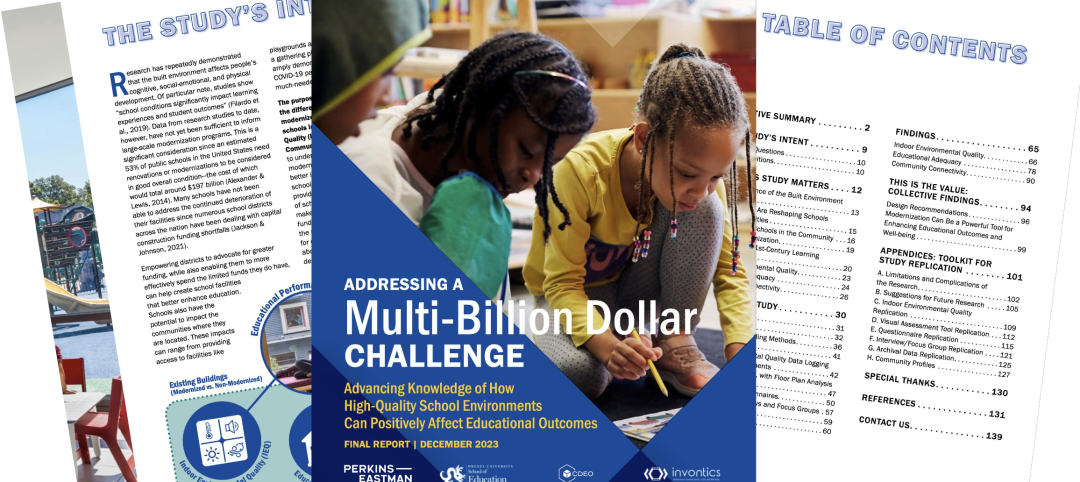The U.S. economy continues to show slow, steady progress despite fears of a global economic downturn and some domestic headwinds, according to the latest edition of “The Briefing,” a Transwestern report that covers the global economy and commercial real estate. Declining corporate profits, business investment and net exports combined with a rising dollar have been offset by consistent job gains, wage growth and resilient consumer spending.
Additionally, aggressive global stimulus plans appear to be having the desired effect. There is now $17 trillion of negative yielding debt in the world, and eurozone first-quarter 2016 gross domestic product growth came in at 2.2%, beating the U.S. for the first time in several years.
“While some see an economy in its final innings, there is little evidence of the financial excess, weak credit, deteriorating underwriting and surging defaults that typically signal the end of an expansion,” said Tom McNearney, Transwestern’s chief investment officer.
“Banks are maintaining, if not strengthening, underwriting standards and have even backed away from higher-yielding, risky loans to energy companies and highly leveraged corporate buyouts,” McNearney continued. “CMBS delinquencies also continue to reflect underwriting discipline. This caution by lenders is likely to prolong the cycle, not expedite a recession.”
 The sporting goods retailer Sports Authority declared bankruptcy in March and announced in May that it would close all of its 450-plus stores. Photo: Phillip Pessar/Creative Commons.
The sporting goods retailer Sports Authority declared bankruptcy in March and announced in May that it would close all of its 450-plus stores. Photo: Phillip Pessar/Creative Commons.
20 FAST FACTS FOR THE BIG PICTURE
- Business investment was up 1.4% in first quarter, but nondefense orders excluding aircraft fell by 2.4%.
- The number of energy loans in danger of default in 2016 is on track to exceed 50%.
- Standard & Poor’s 500 index second-quarter earnings are estimated to decline 4.8%, which would mark the first time the index has recorded five consecutive quarters of year-over-year declines since 2008 – 2009.
- S&P 500 lowered China’s credit rating from AA-neutral to AA-negative watch.
- Exxon was downgraded to AA+ from AAA by S&P 500.
- Arbor launched ALEX, the first online agency lending platform for multifamily in early 2016.
- Amazon plans to lease 20 767 Boeing Freighters from air cargo firm ATSG to further control distribution channels.
- Robots are more prevalent on the job as costs come down and programming is more versatile.
- Technology has boosted cancer research to light speed, which potentially could cause Big Pharma to lose $1.2 trillion in market capitalization.
- New Securities and Exchange Commission crowdfunding rules went into effect May 18, 2016.
- MetLife is selling life insurance business and 4,000 agents to MassMutual in advance of new capital rules and to avoid Dodd Frank designation as “systematically important.”
- New home sales show continued growth, up 17% in April over March, and a recent U.S. Census update shows suburbs are thriving while urban population growth has slowed.
- WeWork raised $430 million in a round of Chinese-led financing, providing an implied valuation of $16 billion for a startup company with limited owned space.
- Major retailers such as Sears and Wal-Mart plan to close stores, while Kohl’s, Gap and Nordstrom experienced sharply lower sales and profits, and Sports Authority filed for bankruptcy.
- Home Depot and TJX Companies first-quarter sales were up 10% and 7%, respectively, and Amazon is now second behind Wal-Mart in apparel sales.
- Auto sales continue at a record pace, with some signs companies are stretching to feed demand.
- First-quarter property sales were down 20%, but pullback was partially due to difficult-to-replicate portfolio and entity-level activity in 2015. Single asset sales were down 11% year-over-year.
- First-quarter CMBS issuance was down 25% due to swap spread volatility and ongoing uncertainty about risk retention rules taking effect December 2016.
- FPL Advisory Group forecast some tapering of pension investment in 2016 to $40 billion despite a recent Preqin survey reporting 78% of investors expect to commit the same amount or more to commercial real estate in 2016.
- The Federal Aviation Administration approved Houston’s Ellington Airport as a launch site: The U.S. will send astronauts and cargo to the International Space Station in 2017 – instead of paying Russia $71 million per flight.
Related Stories
Retail Centers | Apr 4, 2024
Retail design trends: Consumers are looking for wellness in where they shop
Consumers are making lifestyle choices with wellness in mind, which ignites in them a feeling of purpose and a sense of motivation. That’s the conclusion that the architecture and design firm MG2 draws from a survey of 1,182 U.S. adult consumers the firm conducted last December about retail design and what consumers want in healthier shopping experiences.
Market Data | Apr 1, 2024
Nonresidential construction spending dips 1.0% in February, reaches $1.179 trillion
National nonresidential construction spending declined 1.0% in February, according to an Associated Builders and Contractors analysis of data published today by the U.S. Census Bureau. On a seasonally adjusted annualized basis, nonresidential spending totaled $1.179 trillion.
Market Data | Mar 26, 2024
Architecture firm billings see modest easing in February
Architecture firm billings continued to decline in February, with an AIA/Deltek Architecture Billings Index (ABI) score of 49.5 for the month. However, February’s score marks the most modest easing in billings since July 2023 and suggests that the recent slowdown may be receding.
K-12 Schools | Mar 18, 2024
New study shows connections between K-12 school modernizations, improved test scores, graduation rates
Conducted by Drexel University in conjunction with Perkins Eastman, the research study reveals K-12 school modernizations significantly impact key educational indicators, including test scores, graduation rates, and enrollment over time.
MFPRO+ News | Mar 16, 2024
Multifamily rents stable heading into spring 2024
National asking multifamily rents posted their first increase in over seven months in February. The average U.S. asking rent rose $1 to $1,713 in February 2024, up 0.6% year-over-year.
Market Data | Mar 14, 2024
Download BD+C's March 2024 Market Intelligence Report
U.S. construction spending on buildings-related work rose 1.4% in January, but project teams continue to face headwinds related to inflation, interest rates, and supply chain issues, according to Building Design+Construction's March 2024 Market Intelligence Report (free PDF download).
Contractors | Mar 12, 2024
The average U.S. contractor has 8.1 months worth of construction work in the pipeline, as of February 2024
Associated Builders and Contractors reported that its Construction Backlog Indicator declined to 8.1 months in February, according to an ABC member survey conducted Feb. 20 to March 5. The reading is down 1.1 months from February 2023.
Market Data | Mar 6, 2024
Nonresidential construction spending slips 0.4% in January
National nonresidential construction spending decreased 0.4% in January, according to an Associated Builders and Contractors analysis of data published today by the U.S. Census Bureau. On a seasonally adjusted annualized basis, nonresidential spending totaled $1.190 trillion.
Multifamily Housing | Mar 4, 2024
Single-family rentals continue to grow in BTR communities
Single-family rentals are continuing to grow in built-to-rent communities. Both rent and occupancy growth have been strong in recent months while remaining a financially viable option for renters.
MFPRO+ News | Mar 2, 2024
Job gains boost Yardi Matrix National Rent Forecast for 2024
Multifamily asking rents broke the five-month streak of sequential average declines in January, rising 0.07 percent, shows a new special report from Yardi Matrix.

















